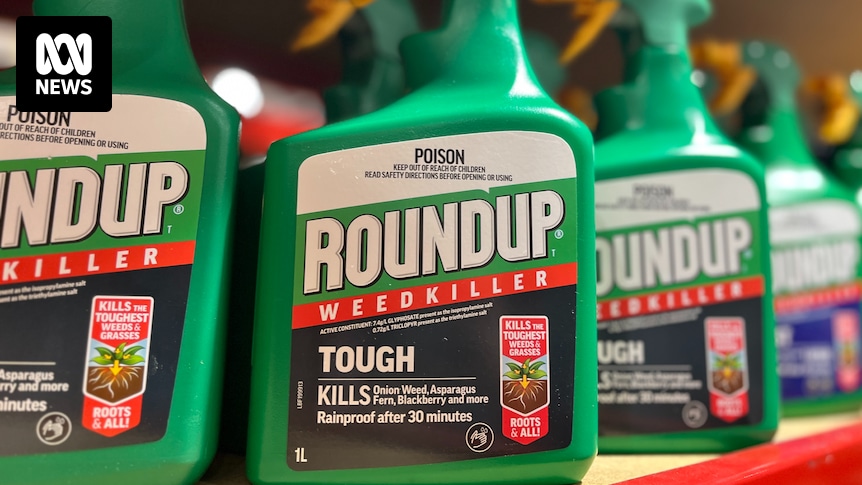short
A large class action against Roundup weed killer that claims exposure to the product causes cancer has been thrown out in Federal Court.
The court found that there was insufficient evidence to prove that the product’s active ingredient caused non-Hodgkin’s lymphoma.
What is expected next?
The court acknowledged there were mixed views in the scientific community about the dangers of Roundup, and said further research could provide a more definitive answer.
There is not enough evidence to prove that the controversial weed killer Roundup causes cancer, the Federal Court has ruled.
Roundup’s parent companies, Monsanto and Bayer, have been taken to court in a major class action, with hundreds of Australians claiming their exposure to the product’s active ingredient, glyphosate, caused non-Hodgkin’s lymphoma.
After hearing evidence in a lengthy trial, Judge Michael Lee said on the balance of probabilities, the plaintiffs had failed to prove the products caused cancer.
Judge Lee acknowledged there were mixed views in the scientific community about the dangers of Roundup, and said further research could provide a more definitive answer.
“One thing is clear – the science is not all in one direction,” he said.
The judge said none of the scientific studies presented at trial led him to conclude there was “clear and convincing” evidence that glyphosate causes cancer in mammals.
The lawsuit against Monsanto and Bayer has now been dismissed.
Glyphosate has been hailed as transformative for farmers, weed sprayers and gardeners, but there has also been widespread debate about its safety.
About 500 glyphosate products are currently approved in Australia.
The latest in a string of legal battles
The current lawsuit, filed by plaintiff Kelvin McNickle and supported by Maurice Blackburn, alleged that the weed killer was carcinogenic and that its manufacturers were negligent about the risks the product posed to customers.
McNickle, who is in his early 40s, developed non-Hodgkin’s lymphoma after two decades of exposure to glyphosate while working for his family’s vegetation management business in Queensland.
About 800 others joined the class action lawsuit of Mr. McNickle.
Roundup makers, who insist the product is safe, have been locked in legal battles with class action litigants in Australia since 2019.
Bayer has also been the subject of numerous legal cases in the United States.
In 2020, it paid $US10.9 billion ($16.6 billion) to settle 95,000 Roundup lawsuits.
However, Bayer claims to have won 14 of 20 previous court cases and has vowed to appeal recent US losses where it was ordered to pay $1.1 billion in damages.
In 2015, the International Agency for Research on Cancer said glyphosate was “probably carcinogenic to humans,” based on what it described as “limited” evidence of cancer in humans.
But two years later, the local regulator, the Australian Pesticides and Veterinary Medicines Authority, said it believed the chemical was not cancer-causing from its own scientific research analysis.
In November 2023, the European Commission voted to approve the use of glyphosate for another decade, although not all member states agreed to support the proposal.
Andrew Weidemann, southern director of Grain Producers Australia, said he had used the herbicide for almost 40 years and believed it was safe.
“It’s one of the biggest investments in my farming time,” he said.
If Roundup is banned, Weidemann said he fears for the future of food production.
Posted , updated
